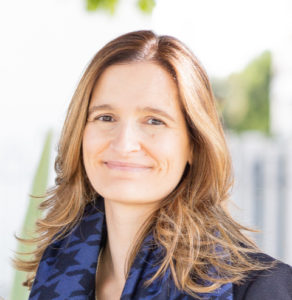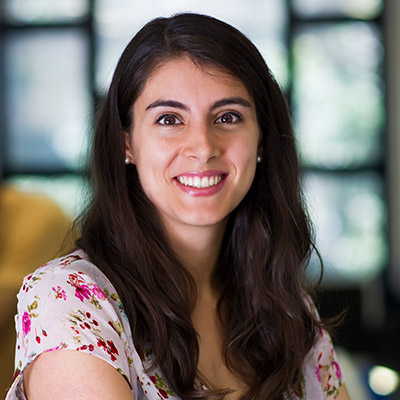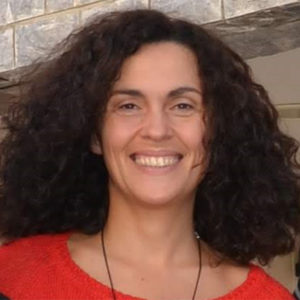P. 812 INÊS ARAÚJO (RESEARCH): Understanding how new neurons develop after brain injury.
The goal is to understand what signals are exchanged between inflamed tissue, microglial cells, stem cells, and new neurons that are formed after an injury.

Inês Araújo, PI of the Neurogenesis Group at the ABC-RI and professor at the Faculty of Medicine and Biomedical Sciences at the University of Algarve (UAlg), wants to develop methods capable of manipulating those signals in order to improve the function of the new neurons, reducing the effect caused by the injury.
Currently, Inês Araújo’s research group is particularly interested in perceiving and identifying the signs that affect the formation of new neurons. In particular, the signals that our brain produces after an accident, a stroke or in the presence of a traumatic brain injury.
“When we have disease situations, injuries and trauma situations, the formation of new neurons ends up not being regenerative. We have not been able to completely recover the areas that were lost when we have these injuries or certain diseases”, Inês explains.
According to the researcher, this happens because the environment caused by the injury is extremely aggressive.
“It is an extremely inflammatory environment that does not provide conditions for these cells to survive. It does not allow these cells to integrate into existing circuits and does not allow them to acquire the function that is lost when we have these lesions”, Inês adds.
Understanding how the signals occur between the different structures of the brain responsible for the formation of new neurons is an essential step towards the development of techniques capable of improving the survival of these cells.
“Our main goal is to understand how the signaling occurs between inflamed tissue, microglial cells, stem cells, and the new neurons that are being formed, and how we can manipulate this signaling in order to improve the survival of the new cells. that form, as well as their recruitment to the injured areas, in order to be able to promote a recovery from pathologies or injuries that affect the nervous system”, Inês reveals.
To listen please visit: https://www.90segundosdeciencia.pt/episodes/ep-812-ines-araujo/
https://www.90segundosdeciencia.pt/
P. 1277 SARA CARVALHAL(RESEARCH): Understanding the development of microcephaly in rare diseases
Microcephaly is a malformation that causes the brain to not fully develop.
Sara Carvalhal, researcher at the Algarve Biomedical Center – Research Institute (ABCRI) at the University of Algarve (UAlg), dedicates her research to the study of the mechanisms that lead to the development of microcephaly in rare diseases.
Rare diseases, although individually affecting a small number of people, collectively affect around 5% of the world population. One of the most prevalent symptoms in these diseases is microcephaly, when the brain does not fully develop and ends up being smaller than expected.
Sara Carvalhal’s research group seeks to understand the relationship between rare diseases and cell division, as it is known that many rare diseases are caused by changes in the genetic material that controls and regulates cell division processes.
The objective of this investigation is to understand how the proteins that participate in cell division eventually lead to microcephaly, as the mechanisms of cell division occur in the same way in all cells of our body.
However, in rare diseases these mechanisms lead to significant changes in the brain.
Sara Carvalhal thus intends to study what leads these changes to affect mostly the brain, in the hope that by better understanding how these mechanisms are processed, it will be possible to find new routes to therapeutic pathways that will ease life of the ones that live with these disorders.
To listen please visit: https://www.90segundosdeciencia.pt/episodes/ep1277-sara-carvalhal/
https://www.rtp.pt/play/p2936/e602497/90-segundos-ciencia
P. 817 RAQUEL ANDRADE (RESEARCH): Studying the molecular mechanism that regulates the development of embryos

This mechanism, known as the molecular clock, is primarily responsible for defining the developmental times of embryonic cells.
Raquel Andrade, professor at Faculty of Medicine and Biomedical Sciences at the University of Algarve (UAlg) and researcher at the Algarve Biomedical Center Research Institute (ABC-RI), is interested in understanding how an embryo develops during the first weeks of pregnancy.
The aim of this investigation is to understand how embryonic cells have the perception of time and where they are in the embryo’s body.
There is a molecular clock that operates in the undifferentiated cells of the embryo. This molecular clock is characterized by fluctuations in the expression of a gene over time, that is, the gene is expressed which leads to the production of a protein. This protein is rapidly degraded, starting a new cycle.
These genetic oscillations are, for example, important for the formation of the precursor structures of the vertebrae of our axial skeleton.
“It is known that mutations in these genes are associated with severe congenital malformations such as scoliosis in different degrees of severity and much more complex malformations that lead to a shortening of the trunk and even the absence of ribs and vertebrae”, Raquel says.
The most recent results of this investigation indicate that the alternation of expression and non-expression states of these genes is fundamental for the correct gene expression over time and for the formation of embryonic structures at the right time and in the right place.
This means that the regular operation of the molecular clock is necessary for the development of the embryo.
If this clock stops working, either through the absence of gene expression or through the continuous expression of these same genes, it will not be possible for the embryo to develop correctly.
To listen please visit: https://www.90segundosdeciencia.pt/episodes/ep-817-raquel-andrade/





